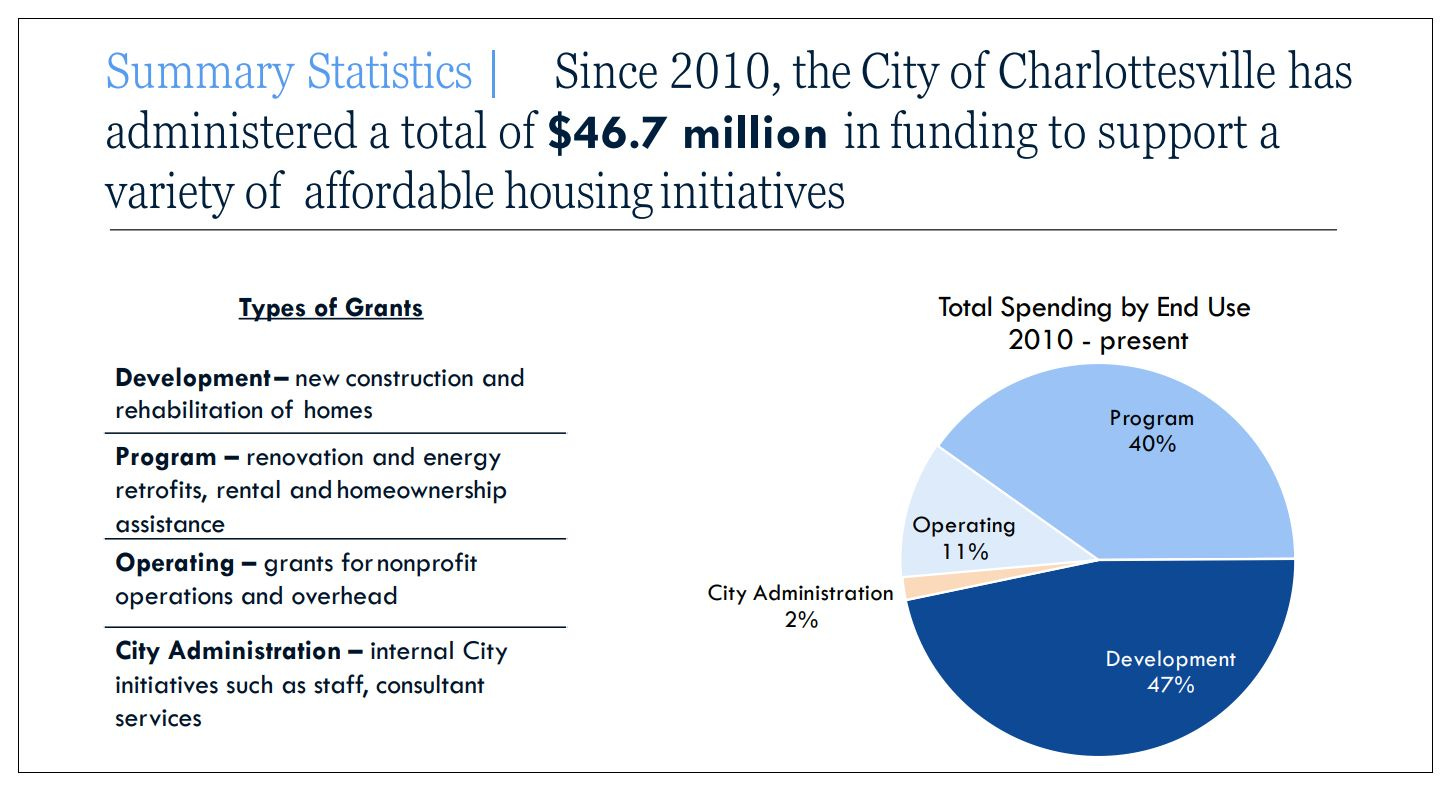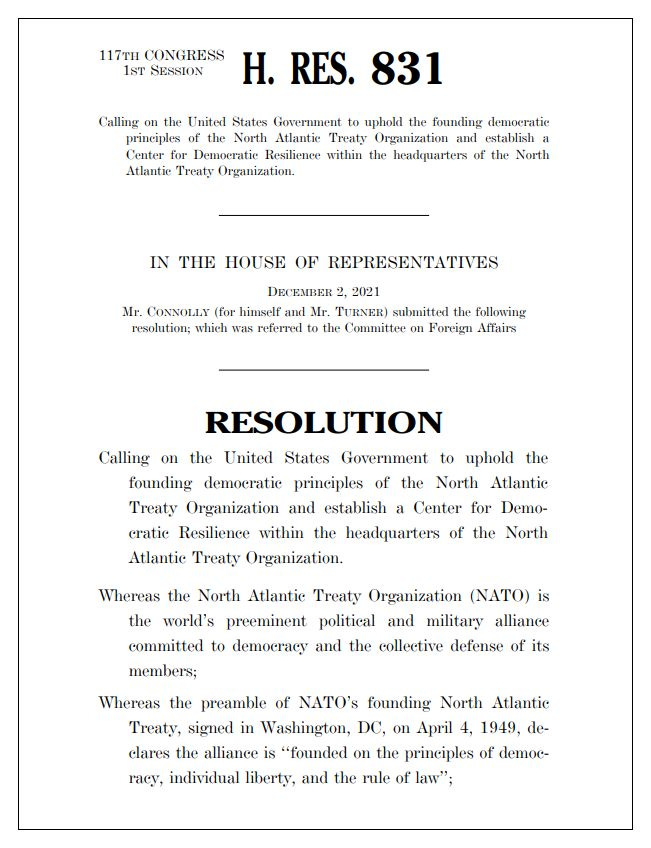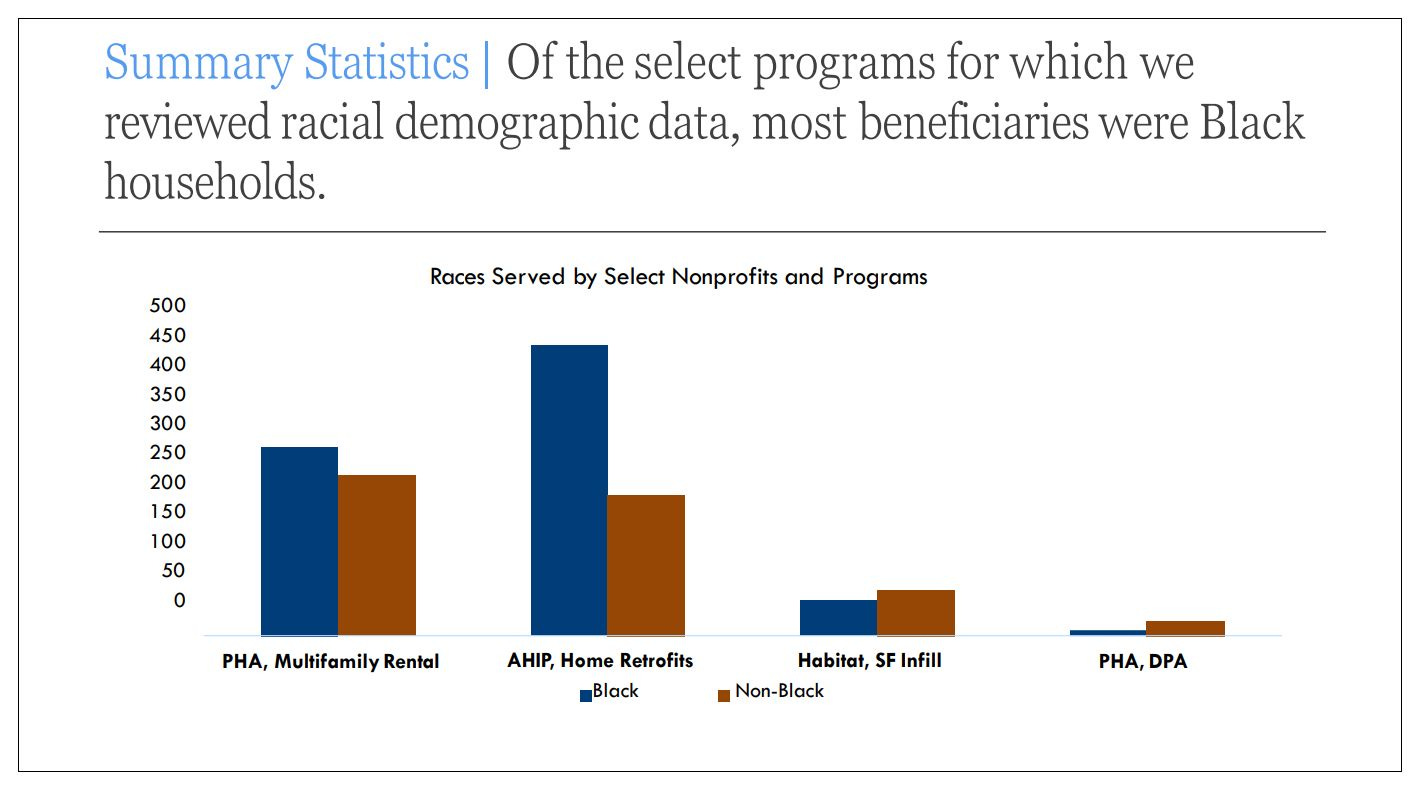In one sense of the phrase, Charlottesville Community Engagement has now come full circle as this is the 360th edition. That coincides with April 6, 2022 but there is not necessarily correlation, but the hope is this edition and every other edition causes you to know more than you did before. I’m your host, Sean Tubbs.
On today’s program:
Deputy City Manager Sam Sanders asks City Council for their feedback on how to meet Charlottesvillle’s goal of putting $10 million a year toward housing
The U.S. House of Representatives votes to support NATO, and two area Congressman vote against the resolution
A quick profile of Fashion Square Mall
Louisa County doubles the amount of a tax rebate for a developer to pay for a regional wastewater pump station
First shout-out goes to Camp Albemarle
Today’s first subscriber-supported public service announcement goes out to Camp Albemarle, which has for sixty years been a “wholesome rural, rustic and restful site for youth activities, church groups, civic events and occasional private programs.”
Located on 14 acres on the banks of the Moorman’s River near Free Union, Camp Albemarle continues as a legacy of being a Civilian Conservation Corps project that sought to promote the importance of rural activities. Camp Albemarle seeks support for a plan to winterize the Hamner Lodge, a structure built in 1941 by the CCC and used by every 4th and 5th grade student in Charlottesville and Albemarle for the study of ecology for over 20 years. If this campaign is successful, Camp Albemarle could operate year-round. Consider your support by visiting the Camp Albemarle website!
U.S. House adopts resolution supporting NATO; Two Virginia Representatives voted against
The U.S. House of Representatives voted 362 to 63 yesterday on a resolution to uphold the founding principles of the North Atlantic Treaty Organization and to make clear that the organization stands for shared democratic values. House Resolution 831 was introduced by Virginia Congressman Gerald Connolly in December and made its way through the House Committee on Foreign Affairs.
“NATO’s founding document, signed here in Washington D.C. on April 4, 1949, this very week,” said Congressman Connolly. “It’s clear. NATO is an alliance of democracies. The preamble to the treaty notes the determination of Allies to ‘safeguard the freedom, common heritage, and civilization of their peoples founded on the principles of democracy. “
Nine of Virginia’s 11 members of the House of Representatives voted for the resolution, which also calls for the establishment of a Center for Democratic Resilience within NATO Headquarters. The resolution comes at a time when NATO forces are keeping a close eye on the Russia’s war against Ukraine. Ukraine is not a member of the organization.
Both 5th District Representative Bob Good and 6th District Representative Ben Cline voted against the bill.
Louisa Supervisors amend performance agreement for Crossing Pointe
When a developer asks for a rezoning to build a larger number of units than otherwise would be allowed, sometimes there are agreements with the locality to provide infrastructure.
When the Louisa Board of Supervisors approved the Crossing Pointe development at Zion Crossroads in December 2019, they entered into an agreement with the developer for a $250,000 real estate tax rebate in exchange for construction of a regional wastewater pump station on the site.
“That pump station is a regional pump station in nature that serves multiple properties in that area, the Zion growth area, and not just the Crossing Pointe [Planned Unit Development],” said Louisa County Economic Development Director Andrew Wade.
Wade said the developer has requested an increase to $500,000 due to the rising cost of construction.
“The price of the regional pump station over the course of three months has gone up from $650,000 to approximately $1.3 million due to material pricing and construction inflation and things of that nature,” Wade said.
Wade said the Louisa County Water Authority will own the pump station when it is completed. The rebates won’t begin until the pump station is operational. Supervisors agreed unanimously to proceed.
Construction on the Crossing Pointe development is soon to begin. There will be 321 dwelling units and 138,000 square feet of commercial property.
The Thomas Jefferson Planning District Commission is currently overseeing a small area study for the growth area which straddles both Louisa and Fluvanna County. The next public meeting for the Zion Crossroads Gateway Plan is April 19.
Special thanks to Tammy Purcell of Engage Louisa for assistance with this story! The latest installment has the latest news on Zion Crossroads, including changes to Zion Town Center that would see fewer single-family detached homes and more townhomes.
Chamber of Commerce profiles Fashion Square Mall
Every now and then, the Charlottesville Regional Chamber of Commerce writes up a profile of a business in the area. This time around their staff asked the leasing and marketing manager of Fashion Square Mall a series of questions, including to mention recent success stories.
“We have recently opened up three new stores and will be opening up many more in upcoming months,” said Athena Emmans in response.
Fashion Square Mall opened in 1980 and has been through a string of owners. The property sold at foreclosure last year and was purchased by a firm called Charlottesville JP 2014-C21 LLC for $20.2 million and that deal closed on September 30.
Now the property is managed by JLL and Emmans writes that they are actively seeking to become a unique destination.
“We offer an indoor shopping experience with a community atmosphere for our tenants to get help with marketing, branding and foot traffic for their business,” Emmans wrote. “We provide small and large businesses with affordable commercial properties.”
To learn more, read the rest of the profile on the Chamber’s website.

Friends of JMRL Book Sale continues through Saturday
In today's second Patreon-fueled shout-out! Lovers of used books rejoice! The Friends of the Jefferson Madison Regional Library is back again with their annual Spring Book Sale opening this Saturday through Sunday, April 10! The Friends of the Library sale will once again take place at Albemarle Square Shopping Center from 10 a.m. to 7 p.m. each day. There’s a special preview for members tomorrow from 5 p.m. to 7 p.m. and there’s still time to volunteer!
Visit jmrlfriends.org to learn more! See you there!
Deputy City Manager Sanders reviews recent audit of Charlottesville’s housing fund
When Deputy City Manager Sam Sanders joined Charlottesville’s management team last July, he more or less filled a vacancy for a lower position that had been open for a year.
“I became your housing coordinator right away, because we didn’t have one,” Sanders said at an April 4 work session on the city’s affordable housing policy. “I have been spending a lot of time observing, reviewing, questioning, complaining, evaluating, and testing all of what we do, how we do it, why we do it, and trying to figure out what else we can do to make it all run more smoothly and definitely be run better.”
Around the same time Sanders was clocking into City Hall for the first time, Council had agreed to spend an additional $165,000 to pay the consultant HR&A Advisors to review how the city has spent its affordable housing funds since 2010. Council had a work session with that firm on March 21, but Sanders wanted to share his views.
See also: Charlottesville City Council discusses reform for affordable housing fund, March 30, 2022

HR&A found that the city has spent $46.7 million on affordable housing programs since 2010.
“The question that you should be asking is if that is good,” Sanders said. “The answer is yes, but good is relative, especially because you will never spend enough on affordable housing. I think most communities have found that around this country. Because markets are always changing, there’s always a need to do a little bit more, a little bit more, a little bit more.”
Sanders said the report found that 1,611 affordable units were constructed or preserved and that 640 additional households were served.
“Can we do better and can we do more?” Sanders said. “The answer is of course you can. But how will that decision get made? How often will you commit more? How much more? And when? Everyone of these questions are critically important to managing a program and knowing the cap helps to manage the many expectations.”
Sanders said there is a need to make sure that the funds are spread around and that many different organizations need to have access. There’s also a need to make sure that Council has accurate data about what has happened to inform future decisions.
In March 2021, Council adopted the Affordable Housing Plan which calls upon the city to invest $10 million a year for this purpose. A previous goal had been $4 million a year, but a big push for investment in affordable housing was made after the events of the summer of 2017.
“2020 was clearly a turning point and we see this as the shift to the $10 million being a good number,” Sanders said. “We know that there are a lot of organizations that have already made it clear that $10 million is not enough. Ideally for us internally we look at the face that you endorsed the Affordable Housing Plan at $10 million a year for ten years and it will be our priority to help you get there.”
Other metrics in the analysis seek to measure the cost effectiveness of funding spent so far. Sanders said that for those organizations who are constructing new units, the cost per unit is higher. However, competitiveness between proposals would encourage those entities to seek out private funding to help leverage city investment.
“But your priority would also be that they do go look in other places to bring additional dollars to the table so that that number doesn’t continue to grow,” Sanders said.
There are also demographic measures that seek to determine how funding is meeting equity goals.
“We only see Black and white as a comparison,” Sanders said. “One thing we have to remember in the equity space is that we make sure we are considering the other minority populations in our community that also deserve attention to be paid to their particular housing situations as well.”
Sanders’ questions for City Council
But, funding is one thing. The question is whether the city is managing its programs effectively. Sanders identified several problems.
“We don’t know how many affordable units still exist from those that we funded,” Sanders said. “That’s accurate. We don’t know even for how much longer they’re going to exist. But we got to do better and there’s work to be done there.”
Sanders said there is not an internal mechanism for the city to keep track. That will take more information from partner organizations that receive the funding. The city needs better tools to ensure compliance.
“We don’t have the best agreements in play,” Sanders said. “They’re not the comprehensive set of agreements that we would use that would ensure that we could capture the information, that we are denoting who is responsible for reporting said information and on what schedule. That way we can go back to them and get what we want.”

Another question for Council is if they want to come up with an official definition for affordable housing for the city, meaning what level of household income should be served by city funding?
“I think it is important for us to be able to define it for the community at large,” Sanders said. “It helps our partners understand what that means to you as the Council but it also helps staff understand how to do the work that they’ve been charged to do.”
Sanders wanted to know what each Councilor thinks about that $10 million for affordable housing. Is it a commitment, or if it is an aspirational goal.
City Councilors Pinkston and Payne said they expect the city to spend that amount. Mayor Lloyd Snook thought it was more of a goal.
“I’m willing to average, which makes it a goal, but it’s not a commitment to me,” Snook said. “Furthermore we don’t have the authority to bind future Councils as a commitment.”
Sanders wanted to know if Council wanted to consider whether the land trust model should be a priority.
“That’s an opportunity for you to add an item to your affordable housing toolbox,” Sanders said. “There are a lot of communities today that are wrestling with the idea of how we can make it more affordable because simply building it isn’t necessarily working it for everyone.”
Sanders said this could take the form of the city setting up its own land trust, or working with the one that is now operated by the Piedmont Housing Alliance after being incubated at the Thomas Jefferson Planning District Commission.
Councilor Brian Pinkston said thought it could continue to be maintained outside of city government.
“What I don’t want to do is invest in a bunch of rework if what PHA or whoever has is working as long as we’ve got solid guardrails to ensure that that is being done in a transparent way,” Pinkston said.
Sanders also said there’s a need for better coordination between the groups that offer support services for homeless individuals. The status quo isn’t enough.
“We locally with all of our housing providers can acknowledge we have gaps and there is no one in that gap,” Sanders said. “So if there’s no one in the gap, if you’re running a good affordable housing program, you stand in the gap. So what we need to be able to do is figure out how do we get in the gap in the right way with the right resources to successfully close that gap.”
That could be expansion of an existing organization through city funding creating a new one.
“But you don’t know any of it if you don’t do the assessment work, you don’t do the analysis work, and you don’t ask the questions,” Sanders said.
Councilor Sena Magill said she would like to see more attention toward homeless individuals.
“I am getting growingly concerned because regretfully it looks like we are back to numbers it looks like we were before the Crossings opened,” Magill said.
The Crossings was one of the earliest beneficiaries of the Charlottesville Affordable Housing Fund and was constructed by Virginia Supportive Housing. That agency has partnered with Piedmont Housing Alliance and the Thomas Jefferson Area Coalition for the Homeless on a second facility to be built at Premier Circle on U.S. 29 in Albemarle County at the site of the former Red Carpet Inn.
Obligations from the recent past
Sanders also briefed Councilors on the reality that future city funds will be tied up to meet the obligations of previously approved projects that include tax rebates such as the one Piedmont Housing Alliance will get for Friendship Court.
‘Those are going to come for payment beginning with Friendship Court in FY24,” Sanders said. “We estimate it’s going to be roughly $200,000 a year for what that is going to cost the city itself to rebate for those improvements.”
All of the redevelopment projects underway by the Charlottesville Redevelopment Housing Authority will employ the same mechanism, another cost to the city over years.
“It’s the same synthetic [tax increment financing] scenario in that whatever tax obligation that would be due would not necessarily be paid and the city would be covering it,” Sander said.
Public housing projects move forward after Council talks on CRHA financial sustainability, CCDC property tax liability, October 24, 2020
Council approves agreement for Friendship Court funding, October 30, 2020
But what about the definitions of affordable housing. Sanders has this perspective.
“I always like to say it is not about affordable,” Sanders said. “We don’t need to be focused on the word affordable. Our focus is on the word attainable.”
Council ran out of time at this work session. Later in the night they would meet again to approve a new Charlottesville Affordable Housing Fund committee, new purposes for the existing Housing Advisory Council, and to allocate projects from the CAHF. More on those items, as well as a 4-1 vote to approve a rezoning on Grove Street Extended in future editions of Charlottesville Community Engagement.
Support Town Crier Productions through Ting!
Special announcement of a continuing promo with Ting! Are you interested in fast internet? Visit this site and enter your address to see if you can get service through Ting. If you decide to proceed to make the switch, you’ll get:
Free installation
Second month of Ting service for free
A $75 gift card to the Downtown Mall
Additionally, Ting will match your Substack subscription to support Town Crier Productions, the company that produces this newsletter and other community offerings. So, your $5 a month subscription yields $5 for TCP. Your $50 a year subscription yields $50 for TCP! The same goes for a $200 a year subscription! All goes to cover the costs of getting this newsletter out as often as possible. Learn more here!


















Share this post